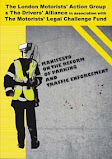Misconduct In Public OfficeThis Guidance was last updated on 19th November 2007.
Crown Prosecution ServicePrinciples ... Who is a Public Officer?
Charging Practice
Useful References Principles
The elements of misconduct in public office are:
a) A public officer acting as such.
b) Wilfully neglects to perform his duty and/or wilfully misconducts himself.
c) To such a degree as to amount to an abuse of the public's trust in the office holder.
d) Without reasonable excuse or justification.
Who is a Public Officer?
In Attorney General's Reference No. 3 of 2003 [2004] EWCA 868, it was put to the Court of Appeal, but not argued as part of the substantive appeal, that public functions are now frequently carried out by employees in private employment, e.g. security at courts and transport of prisoners, and that it was unfair and illogical if those holding public office, such as police officers, were to be liable to conviction of an offence not applicable to private employees doing similar work.
Having not heard argument on the point, this may present problems of definition", which they declined to elaborate upon.
the Court stated as follows (Para 62):
"This potential unfairness adds weight, in our view, to the conclusion that the offence should be strictly confined but we do not propose to develop the point or to consider further the question of what, for present purposes, constitutes a public office."So who holds a public office and as a result can be guilty of this offence? According to the Court of Appeal, which quoted from the earlier authorities, it requires that the defendant "must be a public officer acting as such .... There must be a breach of duty by the officer, [which is wilful and which is such that the conduct is] an affront to the standing of the public office held. The threshold is a high one requiring conduct so far below acceptable standards as to amount to an abuse of the public's trust in the office holder" (Para 56). And later, quoting from the case of Bembridge [(1783) 3 Doug KB 32], "those who hold public office carry out their duties for the benefit of the public as a whole and, if they abuse their office, there is a breach of the public's trust" (Para 57).
Charging Practice
Like perverting the course of justice, misconduct in public office covers a wide range of conduct. It should always be remembered that it is a very serious, indictable only offence carrying a maximum sentence of life imprisonment. A charge of misconduct in public office should be reserved for cases of serious misconduct or deliberate failure to perform a duty which is likely to injure the public interest.
Before deciding to proceed with a charge of misconduct in public office you should consider whether the acts complained of can properly be dealt with by any available statutory offence. If the seriousness of the offence can properly be reflected in any other charge, which would provide the court with adequate sentencing powers, and permit a proper presentation of the case as a whole, that other charge should be used unless:
the facts are so serious that the court's sentencing powers would be inadequate; or
it would ensure the better presentation of the case as a whole; for example, a co-defendant has been charged with an indictable offence and the statutory offence is summary only.
In R v Sookoo (2002) TLR 10/4/02 the Court cautioned against adding a count of perverting the course of justice when the conduct could properly be treated as an aggravating feature of a statutory offence. Similar reasoning should be applied to the charging of misconduct in public office. So for example, an assault by a police officer committed while on duty could also arguably be misconduct in public office, but the appropriate assault charge would provide the court with adequate sentencing powers and the ability to take into account the breach of trust by the officer as an aggravating factor [see R v. Dunn [2003] 2 Cr.App.R.(S)].
Useful References
Archbold 25-381
Attorney General's Reference No. 3 of 2003 [2004] EWCA 868
Bembridge [(1783) 3 Doug KB 32]
Dytham [1979] 1 QB 723
R v. W [2003] EWCA 1632
Witcher & Lang Guildford Crown Court March 2005
R v. Sunshes Nkesha Pike-Williams [2004] EWCA Crim 2400
Bowden [1996] 1 Cr.App.R. 104
Kent v Griffiths and others
Attorney General's Reference No.3 of 2003 [2004] EWCA Crim 868
R v Sookoo (2002) TLR 10/4/02
R v. Dunn [2003] 2 Cr.App.R.(S)
.
 We have just witnessed an outrageous case of injustice in Exeter Crown Court when pensioner Peter Harry, a victim of wilful misconduct saw the accused, Geoff Unwin, an Exeter Parking Services Team Leader given an absolute discharge after pleading guilty to the charge which stemmed from the forging of evidence documents.
We have just witnessed an outrageous case of injustice in Exeter Crown Court when pensioner Peter Harry, a victim of wilful misconduct saw the accused, Geoff Unwin, an Exeter Parking Services Team Leader given an absolute discharge after pleading guilty to the charge which stemmed from the forging of evidence documents.
 Official forged parking documents
Official forged parking documents









